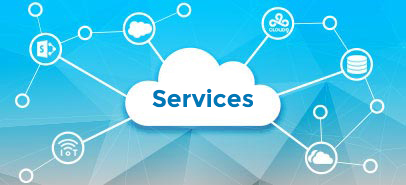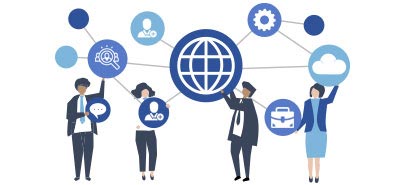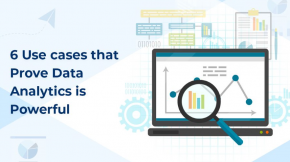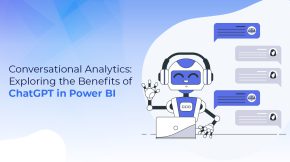Generative AI in 2024: A Big Year and Top 10 Trends for 2025
What We Learned in 2024
In May 2024, the World Economic Forum shared some exciting news. They said generative AI added $4.2 trillion to the global economy in just one year. This is a huge number. It shows how much businesses trust artificial intelligence now.
But this trust is not just about using new tools. It is about how deeply AI fits into their work. Generative AI helped in many areas—creating content, helping customers, and even discovering new medicines.
At the same time, many people asked questions about AI ethics. They worried about fairness, privacy, and rules. These discussions will shape how artificial intelligence grows in 2025.
This blog will talk about AI in 2024 and the key generative AI trends in 2025. The goal is to help you see the future clearly. Let’s explore these ideas together.
What Happened in 2024: Five Important AI Trends
1) AI Creates Content Faster Than Ever
In 2024, tools like ChatGPT and Google Bard became very advanced. They didn’t just write text. They helped create videos, voices, and even designs.
Microsoft’s Copilot integration across its product suite marked a major shift in enterprise AI adoption. By embedding Copilot in Microsoft 365, Windows, and Azure, the company transformed how millions of professionals work.
Copilot agents helped with everything from summarizing long email threads to generating PowerPoint presentations and analyzing Excel data. According to Microsoft’s late 2024 reports, Copilot users reported a 70% boost in productivity and completed tasks in half the time.
2) AI in Customer Support Improved a Lot
Generative AI made customer service much better. Chatbots and virtual assistants became very smart. They could answer hard questions and even understand customer feelings.
For example, tools like IBM Watson Assistant helped banks and retailers solve customer problems quickly. This made customers happy. But sometimes, people felt these bots were fake or robotic. Companies must find a balance between AI and real human care.
3) AI in Healthcare Changed Lives
In 2024, generative AI helped doctors and scientists a lot. It discovered new drugs and diagnosed diseases more accurately. AI tools like DeepMind’s AlphaFold helped build new proteins.
One big news was the FDA approving the first AI-designed drug for testing. This could change medicine forever. But there is still a problem with patient privacy. Governments and companies need to make better rules for this.
4) Ethics and Rules Became Very Important
In 2024, many people worried about AI being unfair or unsafe. Big mistakes in AI systems caused this concern. For example, some AI tools showed bias.
The European Union made strict rules for AI in 2024. These rules asked companies to be more transparent. Big companies like Google also created their own ethics teams. In 2025, following these rules will be a must for every business.
5) AI Helps Personalize Everything
Generative AI changed how companies interact with customers. AI made personalized recommendations for movies, products, and even food. It felt like AI could read your mind.
This worked well for companies like Netflix and Amazon. Customers loved it because everything felt just right for them. In 2025, this personalization will go even deeper. AI will not just say what you like. It will also tell you when and how you need it.
Top 10 Generative AI Trends for 2025
1) Hyper-Personalization Is the Future
In 2025, AI will create even more personal experiences. Imagine a shopping website that changes its look for every visitor. It will know your mood, habits, and preferences.
This will be possible because of better real-time data and smarter AI. Personalization will become a new standard. Companies that ignore this may lose their customers.
2) Conversational AI Will Feel Human
By 2025, chatbots and voice assistants will get much smarter. They will talk like real humans. They will handle long, deep conversations without making mistakes.
This will help businesses in many areas like sales and HR interviews. Better natural language understanding will make all this possible. AI will also use visuals and tone to understand people better.
3) AI Will Help Scientists Discover New Things
In 2025, AI will play a big role in science. It will help researchers find new materials and solve tough problems. For example, AI will make discoveries in biology and material science faster.
Some experts even think AI could help win Nobel Prizes. But this raises questions. Who gets the credit? The human or the AI?
4) Generative Design Will Change Creativity
Generative AI will help industries like architecture and engineering. It will design buildings that are eco-friendly. It will also optimize car parts to make them lighter and stronger.
This will save time and resources. But it will also change jobs. Designers will now work side by side with AI.
5) AI Will Build Apps Without Coders
In 2025, AI will make app development easy for everyone. You won’t need to know how to code anymore.
Microsoft’s Copilot Studio (formerly Power Virtual Agents) and GitHub Copilot will lead this transformation. Copilot agents will become more specialized, with custom agents handling specific business functions like sales forecasting, HR processes, and financial analysis.
The Business Chat feature in Microsoft 365 Copilot will evolve to coordinate these specialized agents, creating a seamless AI-powered workplace experience.
This democratization of app development won’t just help small businesses – large enterprises will use Copilot’s low-code/no-code capabilities to empower citizen developers across departments.
6) Video Creation Will Become Very Easy
Generative AI will make video production fast and simple. Companies will use AI to create ads, tutorials, and social media videos in minutes.
In entertainment, actors may license their faces to AI. This means AI could create movies without the actors actually being there. This is exciting but also controversial.
7) AI Voices Will Sound Completely Real
By 2025, AI voices will sound just like humans. This will be useful for audiobooks, games, and even virtual assistants.
But there’s a risk. Fake voices can be used to spread lies or scams. Companies must find ways to stop misuse.
8) AI Will Automate Complex Workflows
Generative AI will not just do simple tasks. It will handle big, complex processes in 2025. For example, it will help manage supply chains, create budgets, and even write legal contracts.
This will save businesses a lot of time and effort. But it also means people need to learn new skills to stay relevant.
9) AI Will Make Personalized Music
Generative AI will change the music industry in 2025. It will create custom songs for games, movies, and even personal playlists.
Artists and AI will work together to push creative boundaries. But traditional musicians may feel left out.
10) Ethics Will Be a Key Focus
In 2025, ethical AI will become very important. Customers will choose companies that follow fair AI practices.
Transparency, fairness, and privacy will not just be rules. They will be tools to win customer trust. Companies that ignore ethics will lose in the long run.
What 2025 Means for Us
The year 2025 will be exciting and challenging. Generative AI will bring new opportunities. But it will also bring questions about ethics and fairness.
Businesses need to use AI responsibly. If they do, they can grow faster and make customers happy. If not, they may face problems.
AI in 2024 showed us what is possible. Now, the generative AI trends for 2025 will take us even further. Let’s use this technology wisely to create a better future for everyone.












